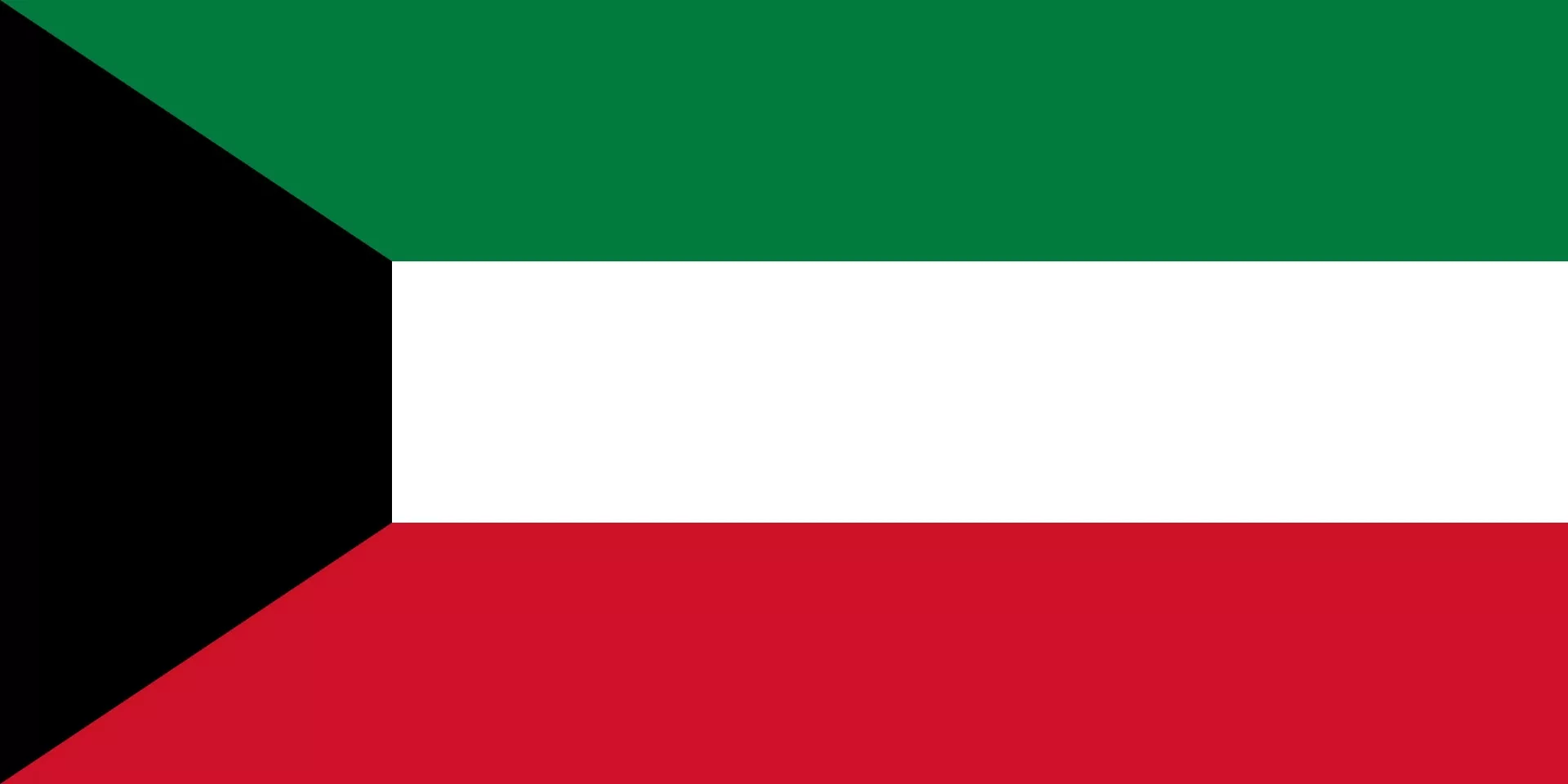

Kuwait
Kuwait is located in the northeast of the Arabian Peninsula, with obvious geographical advantages and superior resource endowments. Kuwait borders Iraq to the north, Saudi Arabia to the west and south, and Iran across the sea to the east. It is an important hub connecting the land and sea routes in Asia and Europe. Kuwait has a land area of about 18,000 square kilometers and is rich in oil and natural gas resources. Its proven oil reserves rank 7th in the world, its natural gas reserves rank 23rd in the world, and its oil production capacity ranks 9th in the world. It is an important fossil energy producer and exporter in the Middle East. Kuwait's political situation is relatively stable, the royal Sabah family is highly respected, and the people live a comfortable and prosperous life. Kuwait has a good foundation for economic development and was called the "Pearl of the Gulf" before the 1990s. With a stable development environment, sufficient fiscal budget, and abundant oil and gas resources, Kuwait's economic development is on the rise. During the COVID-19 pandemic, Kuwait's economy grew against the trend, and GDP growth is expected to exceed 8% in 2022. Kuwait's economic growth rate will slow down relatively in 2023, but it will still be at the forefront of the Middle East and North Africa. In recent years, Kuwait has vigorously promoted economic diversification, promoted the reform of the judicial and administrative system, and regarded the green economy and digital economy as important pillars for implementing the "2035 National Vision". Kuwait is the first country in the Gulf to achieve 5G commercial use. In June 2023, Kuwait formulated a 2024-2027 plan to promote the implementation of 107 major projects covering the fields of economy, society, entertainment and human resources.
Arabic is the official language of Kuwait and English is the common language. Kuwait has Islam as its state religion, and 95% of its residents believe in Islam, of which about 70% are Sunnis and 30% are Shiites.
[Customs and taboos related to religious beliefs] Kuwait is a traditional Muslim country, and Islamic law has penetrated into all aspects of social life and affected people's daily lives. Because it is an Islamic country, men mostly wear white (dark in winter) robes. Since they pray five times a day, men often wear sandals so that they can take off their shoes and wash their feet before entering the mosque to pray. Women must be respected in Kuwait, and no frivolous behavior towards women is allowed in public.
【Ramadan】During Ramadan, Muslims stop eating from sunrise to sunset. Non-Muslims are also not allowed to eat in public. Due to fasting, most employees only work half a day, and their work efficiency is low. Stores are only open in the morning until sunset and then until midnight.
【Main taboos in Islam】Alcohol and narcotics are prohibited, and traffickers can be sentenced to death; pork and pork products are prohibited, pig leather products are prohibited; dead animals and blood are prohibited; smoking, drinking and eating in public during Ramadan are prohibited, and violators will be detained until the end of the month; Western insurance products such as personal insurance and life insurance are prohibited.
(1) Foreign investment regulations: Kuwait promulgated the Direct Investment Promotion Law in 2013, the Administrative Implementation Regulations of the Direct Investment Promotion Law in 2014, and the Negative List for Foreign Investment Access in 2015. The Kuwait Direct Investment Promotion Agency has set up a "one-stop" administrative service department to be responsible for the establishment, expansion and other changes of investment entities, and the issuance and extension of licenses. Learn more about the policy services for attracting foreign investment. (https://kdipa.gov.kw/about-kdipa/law-decisions/)
(2) Foreign investment preferential policies: Foreign investment projects in Kuwait can enjoy preferential policies including: exemption from income tax or any other tax for up to 10 years from the official operation of the investment project, and exemption from the above taxes for reinvestment in the project, and the tax exemption period is the same as the period enjoyed by the original investment when the project was built; full or partial exemption from customs duties on machinery, equipment and spare parts required for project construction and expansion, as well as raw materials, semi-finished products, packaging and filling materials required for production; allocation of land and real estate required for investment in accordance with the current laws and regulations of the country; employment of necessary foreign labor in accordance with the current laws and regulations of the country. According to relevant regulations, all approved foreign projects shall not be confiscated or nationalized. Only when the public interest requires it, they can be expropriated in accordance with the current laws and corresponding compensation shall be given. The amount of compensation shall be assessed based on the economic conditions of the above-mentioned projects before the expropriation, and the compensation shall be paid immediately. (https://kdipa.gov.kw/invest-in-kuwait/guarantees-incentives/)
(3) Regulations on investment industries:
[Industries and laws and regulations prohibiting, restricting and encouraging foreign investment] Kuwait's Ministerial Decision No. 75 of 2015 clearly defines 10 areas where foreign investment is not allowed, namely:
① Crude oil extraction;
② Natural gas extraction;
③ Coke production;
④ Fertilizer and nitrogen compound production;
⑤ Gas manufacturing, distribution of gas fuel through main pipelines;
⑥ Real estate (excluding privately operated construction projects);
⑦ Security and investigation activities;
⑧ Public administration and national defense, compulsory social security;
⑨ Member-based organizational activities;
⑩ Labor employment (including domestic employment).
Kuwait's key investment areas are high-tech industries, such as electronic network construction, telecommunications, environmental protection, advanced oil technology, etc., and do not encourage investment in industries with overcapacity, such as the hotel industry. Foreign entities established under the Direct Investment Promotion Law can hold 100% of the shares. Kuwait does not allow foreign investment in land purchases. The Central Bank of Kuwait is responsible for supervising foreign banks.
(4) Tax system and system: Kuwait is a low-tax country with no corporate business tax, personal income tax, stamp duty, value-added tax, etc. The foreign investment profit tax rate in Kuwait is 15%.

Customized overseas services for Chinese enterprises
Helping Chinese companies to expand overseas with less worries
